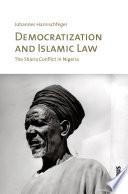
Contemporary Interpretation of Islamic Law
This book does not champion some of the popular misconceptions surrounding Islamic law. It does not advocate stoning to death; amputating the hands of thieves; call for the death penalty for those who leave the fold of Islam; or urge Muslims to save their souls from Hellfire by shunning bank loans for fear of incurring interest. What it does advocate is less sensationalistic, but it is in line with the real interpretation of Islamic law.Contemporary Interpretation of Islamic Law is divided into thirteen chapters. The majority of the chapters concentrate on criminal aspects of Islamic law, while the remainder concern themselves with social issues. Each chapter – where possible – provides background information of the topic under discussion and then proceeds to analyse, examine and critique the contentious parts of the topic, looking at the arguments from all sides and the evidence put forward by each side before arriving at a conclusion. The book is accompanied by a glossary. “Our work differs from other published titles on Islamic law as it takes into account the different aspects of the Qur’an. The Qur’an employs many parables, allegories and metaphors to highlight important messages for Mankind, yet jurists often make the common mistake of either omitting or misinterpreting these devices, resulting in inaccurate and often unlawful rulings which have direct and indirect effects on both Muslims and non-Muslims alike. It is hoped that our work will create a better understanding of the correct interpretation of the Qur’an and Islamic law,” says authors Ahmed Affi and Hassan Affi. Contemporary Interpretation of Islamic Law will appeal to those with an interest is Islam and Islamic law, though no specialist knowledge of Arabic or Islamic law is required.
- ISBN 13 : 1783062134
- ISBN 10 : 9781783062133
- Judul : Contemporary Interpretation of Islamic Law
- Pengarang : Ahmed Affi, Hassan Affi, Hassan Affi, Hassan Affi, Hassan Affi,
- Kategori : Islamic law
- Penerbit : Troubador Publishing Ltd
- Bahasa : en
- Tahun : 2014
- Halaman : 262
- Google Book : http://books.google.com/books?id=74e9AgAAQBAJ&dq=intitle:LAW+IN+ISLAM&hl=&source=gbs_api
-
Ketersediaan :
Introduction Islam takes a dim view on the consumption of alcohol because of the
many ills that alcohol invites, yet, despite Islam's coherent stance on the matter of
alcohol, there will always be some segments of society who will regard Islam's ...









